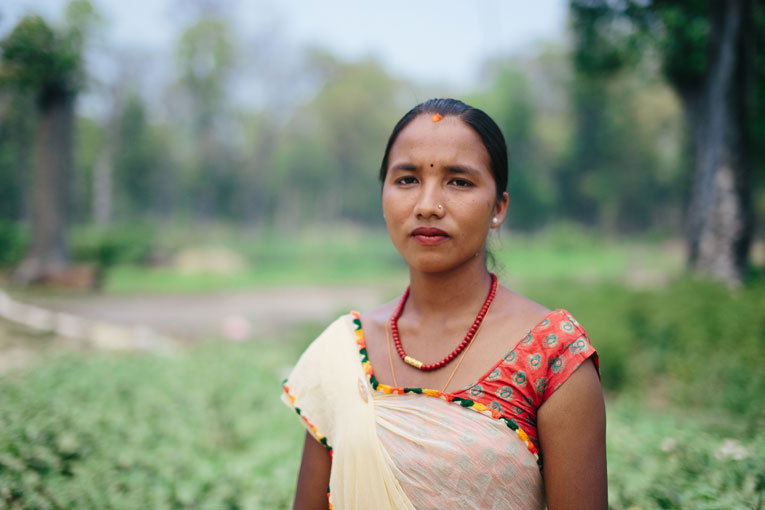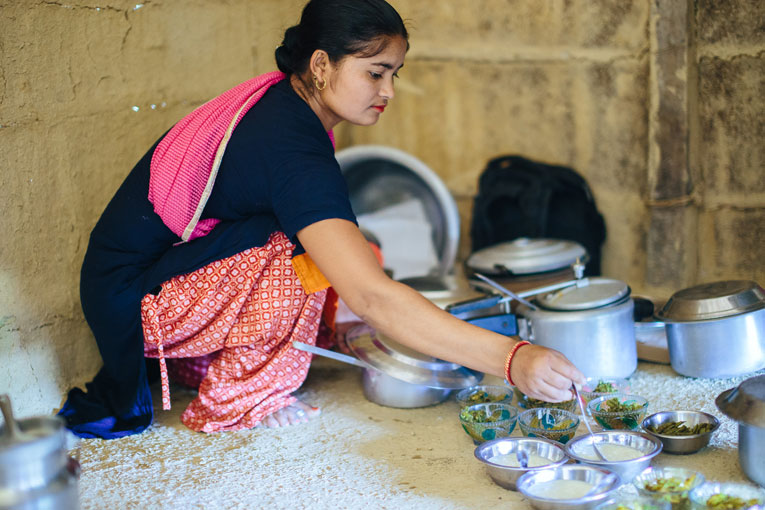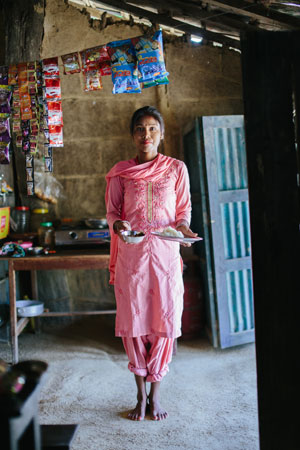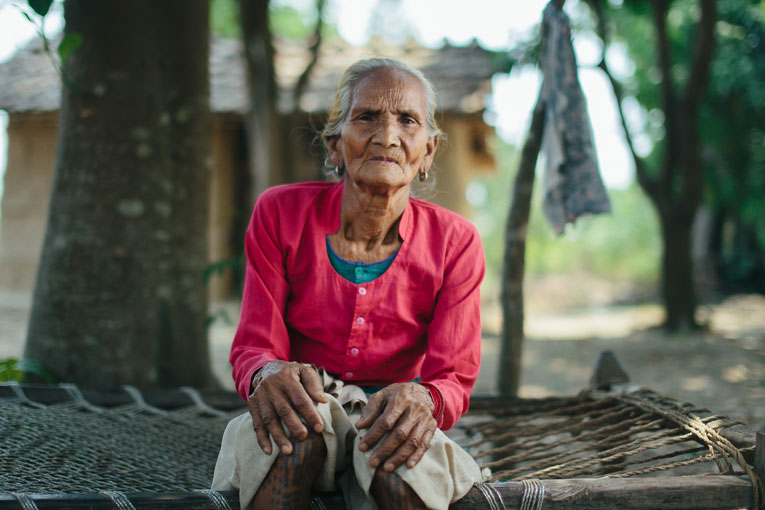”When we moved here, there was nothing” – FCA supports livelihood projects in ex-bonded labor communities in Nepal
The centuries-old tradition of bonded labour was ended in Nepal over ten years ago. The end of debt bondage left many families with nothing, meaning no land of their own, no education, and no means of subsistence. FCA supports livelihood projects in ex-bonded labor communities.
Hot and dry. The temperature is over 40 degrees Celsius, and the soil has turned yellow. In western Nepal, close to the Indian border, conditions are harsh in the late spring. Before the monsoon, the earth is dry and water is in short supply. The weather has always been hot this time of year, but climate change has made the arrival of the rains hard to predict.
”When we moved here, there was nothing,” says Sushila Chaudhari. Now, the village is surrounded by fields, and the other edge is used for raising pigs. By selling vegetables, the family has earned enough to become self-sufficient. Sushila moved to the village 12 years ago when she got married. Since then, the region has developed enormously. Nowadays, it is even possible to dream.
”I want to expand my cultivation and make it possible for my children to continue their studies,” she says.

Sushila Chaudhari lives in the community of ex-bonded labour.
The villages of Kailali district are home to several communities of former bonded labourers. The drought is not the only challenge standing in the way of their livelihood – many are still living without land or birth certificate. Some of the former bonded labourers have been able to register a plot of land to their name and make a living, for example, by farming, raising chicken, or running small-scale businesses.
33-year-old Gita Chaudhari lives in Kailari with her husband and two children. Gita moved to the village when she got married 14 years ago. Her son, 14, and daughter, 10, go to school. The family earns a living by raising chicken and growing crops on rented land. Gita spent her childhood helping her parents, who lived in debt bondage, with household chores.
Nepal has a long history of various forms of bonded labour. The Haliya labour system was banned in 2008 and the Kamaiya system in 2000; in both systems, labour meant hard agricultural labour for the landlord. A feature typical of the debt was that it accumulated interest and, in practical terms, was often impossible to pay back. The debt was even inherited by the children of the family, forcing the entire family into bondage. For children, this meant dropping out of school or going without education altogether.
Basanti Chaudari’s tea shop sells a variety of foods such as samosas, noodles, and biscuits. The shop, founded five months earlier, is off to a good start. A project supported by Finn Church Aid has provided Basanti with education regarding maintaining the shop, as well as a startup grant to help her get started.

Basanti does practically everything in the shop herself.
”Sometimes it’s hard to manage to prepare all the food. At times, the children help me, and for example, my daughters help out by wiping the tables and so on.”

Shanti Chaudhary is helping her sister-in-law.
Today, offering additional assistance as a waitress is the wife of her brother-in-law Shanti Chaudhary, whose husband works in India. Kailali is dry and sparsely populated, and livelihood opportunities are poor. The neighbouring countries offer more jobs, and opportunities such as factory work in India drive many men to look for employment abroad.
The shop is off to a good start, and Basanti hopes to be able to save money and expand her business in the future. In addition to villagers, her customers include passers-by.
”I didn’t go to school, and because of that, I didn’t use to have work. Now I do, and I even make money.”
Because Basanti herself was unable to go to school, it is important for her to offer her children a better starting point. She uses the profits from her shop towards the education of her twin daughters, 7, and her son, 10.
Finn Church Aid’s partner organisation Freed Kamaiya Women Development Forum supports the communities and women groups of the region in various ways. Saving cooperatives allow the women of the region to grow their livelihood, for example by getting loans to buy or rent a bigger plot of land. The women of Janchetana Saving and Credit Cooperative say that cooperation makes them happy. During their meetings, the office of the cooperative is always full, and agreements are reached together.
”At first, making rules wasn’t easy. People had lots of conflicting views, but by talking things through together, we reached an understanding”, they say.
Now, the successful group has been operating for five years. Dreams for the future include getting premises of their own instead of rented space; in addition, the group hopes to turn their operation into a real bank.
Most of the income is from farming. Irrigation is a challenge, while another problem is how to get the vegetables produced to the market; at present, some of the crops go to waste.
Bonded labourers had no freedom to move or to make decisions regarding how to spend their time. All the work decreed by the landlord had to be done, and the landlord got all the profits. When the centuries-old tradition of bonded labour was broken, the labourers were free.
Until 2001, 90-year-old Champi Chaudhari lived as a Kamaiya, or in bonded servitude.

Up until 2001, Champi Chaudhari lived in bonded servitude.
”We were treated like animals,” she says.
All her time was spent working for her landlord, and during what little time was left over, she had to take care of her own family. She had nothing left for herself.
”I’m doing really well now. I no longer have to work, and we have all the amenities here,” she says.
The village community has began farming with success, and agricultural work keeps the parents of the families occupied. Champi Chaudhari no longer needs to work. As the village elder, she now gets to enjoy her life.
Text: Noora Pohjanheimo
Translation: Leena Vuolteenaho
Photos: Tatu Blomqvist